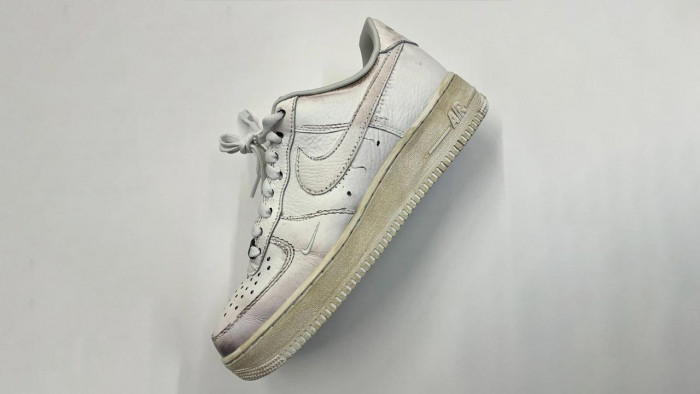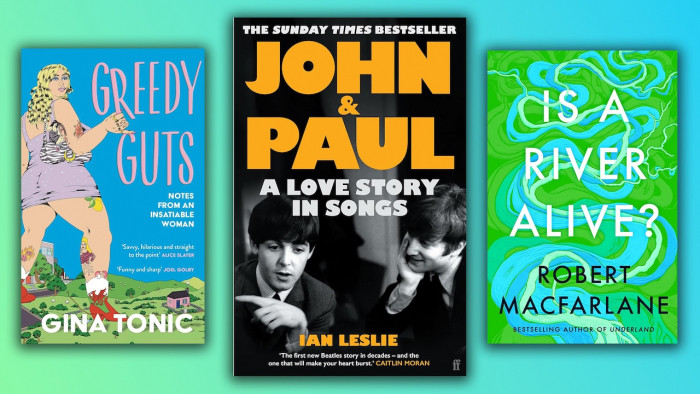The man behind David Brent writes exclusively about why he's bringing Brent back...
You may have heard that I'm bringing back David Brent for Comic Relief. It's been 10 years since we last saw him, so I thought it was time to revisit my most famous comedy creation to find out what he's been up to for the last decade and most importantly what he's up to now. In the new mini episode - The Office Revisited - we find out that David hasn't given up his dream of making it in the music business.
The documentary crew find Brent selling cleaning products to offices, pubs, restaurants and anywhere else with toilets, floors and staircases. It's not a glamorous job but it funds his real passion: music. Brent is managing acts now.
He is passing on his wisdom to younger would-be rockstars now and is living vicariously through a young performer Dom Johnson. Well, really he is trying to worm his way back into rock and roll. Fans of The Office will be excited to know we finally get to hear the whole of ‘The Serpent who guards the gates of Hell’ and an amazingly cringe-worthy, self-funded video ‘Equality Street’. Horrendous.
It's so exciting for me to be bringing back a character I've known for nearly 20 years now.
The first episode of Series One aired at 9:30 p.m. on a Monday night, 9 July, 2001. But obviously the concept existed sometime before that. The BBC pilot was shot in January 2000, and we shot our own pilot two years before that. It was shot in a day in the “real Office” that I worked in for eight years from 1989 to 1997. I had David Brent as a character from about 1995 I’d say, and he is based on people I’d met throughout my adult life.
The very first scene of the series, where he is talking to the forklift truck driver, is based on an interview I had at a temp agency when I was 17, in the school holidays. He was in his mid-thirties wearing a bad suit. His opening sentence was, “I don’t give sh—y jobs”; I just looked at him and nodded. He said “If a good guy comes to me,” (he pointed at me to let me know he already knew I was a good guy), “and says I wanna work hard because I wanna better myself, then I will make that happen.”
He phoned his friend and at one point said, “Yes of course he’s 18″; then he winked at me and did the Pinocchio nose mime. (It was nothing to do with fork lift truck driving but it was for work in a warehouse). I never saw him again, but I used to do impressions of him as I told the anecdote over the years. He was the very first Brent I can remember. There have been many since. Most of them have been on The Apprentice. David Brent doesn’t represent evil, or nastiness or even ignorance. He’s just a little out of place. Out of time. His worst crime is that he confused respect with popularity. He wanted both but concentrated on the wrong one. He didn’t really know what people wanted of him. He shouldn’t really have worried about that at all. He just tried a little too hard. He wasn’t a bad man. In fact he was quite a nice man and I have a real affection for him. I like all my characters I play or create, to be honest. I don’t think you should ever feel above the role or sneery towards them.
Comedy is above all about empathy in my opinion and I think as an actor, the more you empathise with a character, the more engaging he will be to an audience. It doesn’t mean he has to be perfect or squeaky-clean, but he must have his foibles planted somewhere in humanity. And at some level he has to be vulnerable. David Brent was certainly that. Insecure, eager to please, and needing constant positive feedback.
This is why it made total sense to have him crave fame. Throughout the nineties, I’d been watching an awful lot of those docu-soaps where everyday people are followed and become minor celebs. Hotel, Airport etc. It started off quite sweet with nice normal people getting a bit of recognition for being funny or interesting. But then of course, people started acting up to be “discovered” and get their 15 minutes. By the time The Office came along, Pop Idol and Big Brother had made being famous the shortcut to happiness for every wannabe in the country. This trend is not slowing down either. A recent university study asked British 10-year-olds what they wanted to be when they grew up. They answered “famous”.
But The Office was not about media in any way. It reflected some of the symptoms of a society fascinated by celebrity, but it was truly about real, everyday people. I resisted saying normal people because I feel it wouldn’t be interesting watching a programme about “normal” people. Particularly in Britain. We love the peculiar. The Office, like many other sitcoms before it, finds humour in a dysfunctional family. The reason why we find this both funny and comforting is that we all belong to a dysfunctional family. If you don’t, there’s something wrong with you.
The dysfunctional family in The Office had a lot of children. Namely the men. Men as boys and women as adults was a recurring theme. This is funny because it’s true. Men don’t really grow up. And a man who is meant to be in charge and a role model acting like a big kid is even more ridiculous. This is why it was important to always keep Brent in the work environment. He should know better. If he’s on holiday or at home he can do what he wants. But when he’s meant to be leading by example and he acts like a tw*t, it’s pathetic. This is the ‘sit’ in sitcom. It’s all about the situation. Take that away and everything changes. Add a film crew that captures every faux pas and you’ve got 10 times the embarrassment. And embarrassment is the greatest English fear of them all.
The fake documentary element was absolutely essential. It reminded us why everyone was acting the way they did. He heightened consequences, and above all, it made the audience connect. Brent being embarrassed is one thing, but as soon as he looked down the lens he brought us all into it. We felt his pain. And we liked it. Sort of. You could either laugh at him thinking, “There but for the grace of God go I,” and feel good about yourself. Or you could be saying, “Oh my God. I do that.” And realise you’re not the only one. And so feel good about yourself. It’s a theory.
Gareth is even more of a fool than Brent in many ways. And even more immature. There’s a very good reason for that. He’s based on the kid I went to school with. I talk about him in most of my stand-up shows. He’s the one who put a crab in a pint of beer on holiday, because I told him, as a joke, “When a crab is drunk, it walks forwards.”
And Tim is based on a guy I used to work with, mixed with Norm from Cheers, a little Chandler from Friends, and a touch of Oliver Hardy. Stan and Ollie feature in all my work really. The blind leading the blind. Both thinking they’re with an idiot. Both right. Both struggling. And both needing each other to survive. Beautifully precarious.
They could fall at any moment. But just for us they get back up again. Who needs winners? They’re not in the slightest bit funny or interesting. Give me a loser any day. Thanks for watching.
"The Office Revisited" will be shown on Red Nose Day on Friday 15th March on BBC One and then the entire piece including the pop video and a special "Making Of" feature will immediately be available worldwide at https://www.youtube.com/rickygervais.
Latest
Related Reviews and Shortlists










